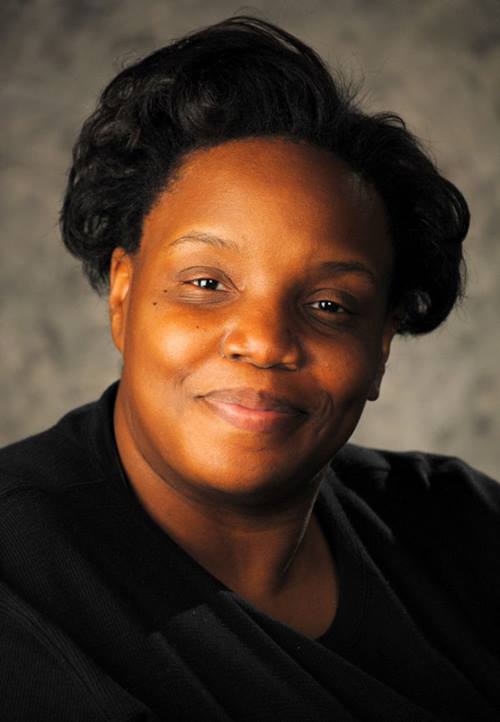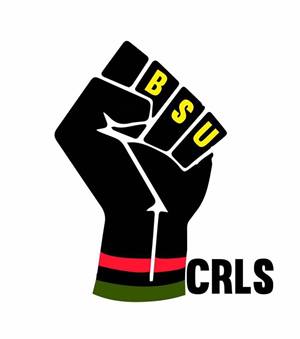Winners of 2020 MTA Human and Civil Rights Awards announced
Winners of 2020 MTA Human and Civil Rights Awards announced

A longtime activist and two student-led groups are recipients of the 2020 MTA Human and Civil Rights Awards.
The awards will be presented at the next MTA Human and Civil Rights Awards celebration, which is scheduled for June 18, 2021. Because the 2020 award presentations had to be postponed as a result of the coronavirus pandemic, the MTA Human Relations Committee decided to combine the 2020 and 2021 ceremonies into one. It will be the 38th such event.
The recipient of the 2020 Louise Gaskins Lifetime Civil Rights Award is Candace Shivers, an associate professor of sociology and human services at Mount Wachusett Community College. Shivers currently serves as president of the Mount Wachusett chapter of the Massachusetts Community College Council and as a Massachusetts director on the National Education Association Board of Directors.
Recipients of the 2020 Kathleen Roberts Creative Leadership Awards are the Cambridge Rindge and Latin School Black Student Union and the Sutton High School Connections Program. Denise LaPolla, chair of the HRC, said members of the committee “felt terrible that we were not able to honor the 2020 winners in person.” Committee members are looking forward to honoring them along with the 2021 award winners next June, she said.
“This year’s awardees include someone who has served her students, her fellow educators and the cause of public higher education for years as well as two groups of idealistic students who are already making the world a better place,” LaPolla said. “We are thrilled to add them to the MTA’s long list of Human and Civil Rights Award recipients.”
Shivers was nominated by the MTA Ethnic Minority Affairs Committee and the MTA Task Force on Race.
Sharmese Gunn, chair of EMAC and a member of the Race Task Force, wrote in support of the nomination that Shivers has “instilled unionship” in many budding MTA leaders.
Gunn said that Shivers “is a staunch advocate for social justice, labor laws, and fair practice. In simpler terms, she believes in doing what’s right for the world and all its people.” She continually encourages fellow professionals and students of color, women and people who are LGBTQ to get involved in the decision-making process, Gunn added.
Yan Yii, an incoming Massachusetts director on the NEA Board and former EMAC chair, said that “there is no other person I see as more fitting for the 2020 Louise Gaskins Lifetime Civil Rights Award” than Shivers.
“Her tireless commitment to unionism and civil rights is unparalleled,” Yii said, adding that Shivers “consistently advocates for racial and social justice. She is a role model to so many unionists.”
In a letter supporting the nomination, EMAC member Rosa Lopez-Whitehill said that Shivers “embodies the spirit of the MTA.”
“Candace has touched many union members by inspiring them to get involved” and she patiently helps anyone who comes to her for advice, Lopez-Whitehill noted.
Julie Capozzi, a fellow professor at Mount Wachusett, said that Shivers is beloved by her students and “has many students taking her for as many courses as she teaches.”
The groups receiving the 2020 Kathleen Roberts Creative Leadership Awards also have a record of fighting for public education — and for equity.
 The Black students who brought back the dormant Black Student Union at Cambridge Rindge and Latin in 2017 faced significant obstacles as they sought to revive an extracurricular student club in a city still struggling with racism, wrote Kevin Dua, a history teacher at the school and adviser to the group, in his letter of nomination.
The Black students who brought back the dormant Black Student Union at Cambridge Rindge and Latin in 2017 faced significant obstacles as they sought to revive an extracurricular student club in a city still struggling with racism, wrote Kevin Dua, a history teacher at the school and adviser to the group, in his letter of nomination.
Dua, a past recipient of the Kathleen Roberts Creative Leadership Award himself and the 2017 Massachusetts History Teacher of the Year, wrote that the group epitomizes “the cores of volunteerism and leadership that characterized Roberts’ selfless contributions via political action, community organizing and mentoring.”
While past and current members of the BSU have faced “ongoing discrimination, harassment, prejudice, ageism and racism” within their own community, he wrote, the students have persisted in the belief that creating a “safe, brave space for Black youth, in and out of their school building,” was worth it. In social justice and antiracism work, he added, “These Black student leaders have made an overwhelmingly positive impact and legacy on the lives of others.”
Juliette Low Fleury, a co-founder of the group and a graduate of Cambridge Rindge and Latin, wrote in support of the nomination, “What this group has evolved into has become an empowering, direct source for Black students, and, indirectly, for white students and students of color to recognize their privilege and support to ensure an equitable environment for their classmates.”
The Sutton High School Connections Program is a student, staff and community initiative that addresses social justice issues.

Forty students and seven educators make up the program, which works with others in the community to learn, confront issues of social injustice and teach about acceptance, tolerance, diversity, and privilege.
Michael Whittier, co-president of the Sutton Teachers Association, nominated the group. He wrote as an educator at the high school, but also as a member of the community and the father of a student whose world view has been shaped by the program.
“Ours is a community of privilege,” Whittier wrote, and “a very conservative community by Massachusetts standards.” Sutton is “the last place that such a program might exist,” he wrote, “but most certainly a place that it is needed.” He added that the program fostered his daughter’s engagement in social justice efforts and developed her leadership skills while she was a student.
Over the last couple of years, the group has expanded its powerful social justice mission, initiating the Connections Conference, known as the “ConCon.” In 2019 the ConCon brought in more than 500 students and educators from 37 schools around New England. Last year’s ConCon, scheduled for March, had grown to include more than 800 participants from 50 schools.
The students were devastated when the event had to be canceled due to the COVID-19 pandemic. But Connections participants continued meeting remotely after in-person instruction ended — and the group is planning for either an in-person or virtual ConCon this year.